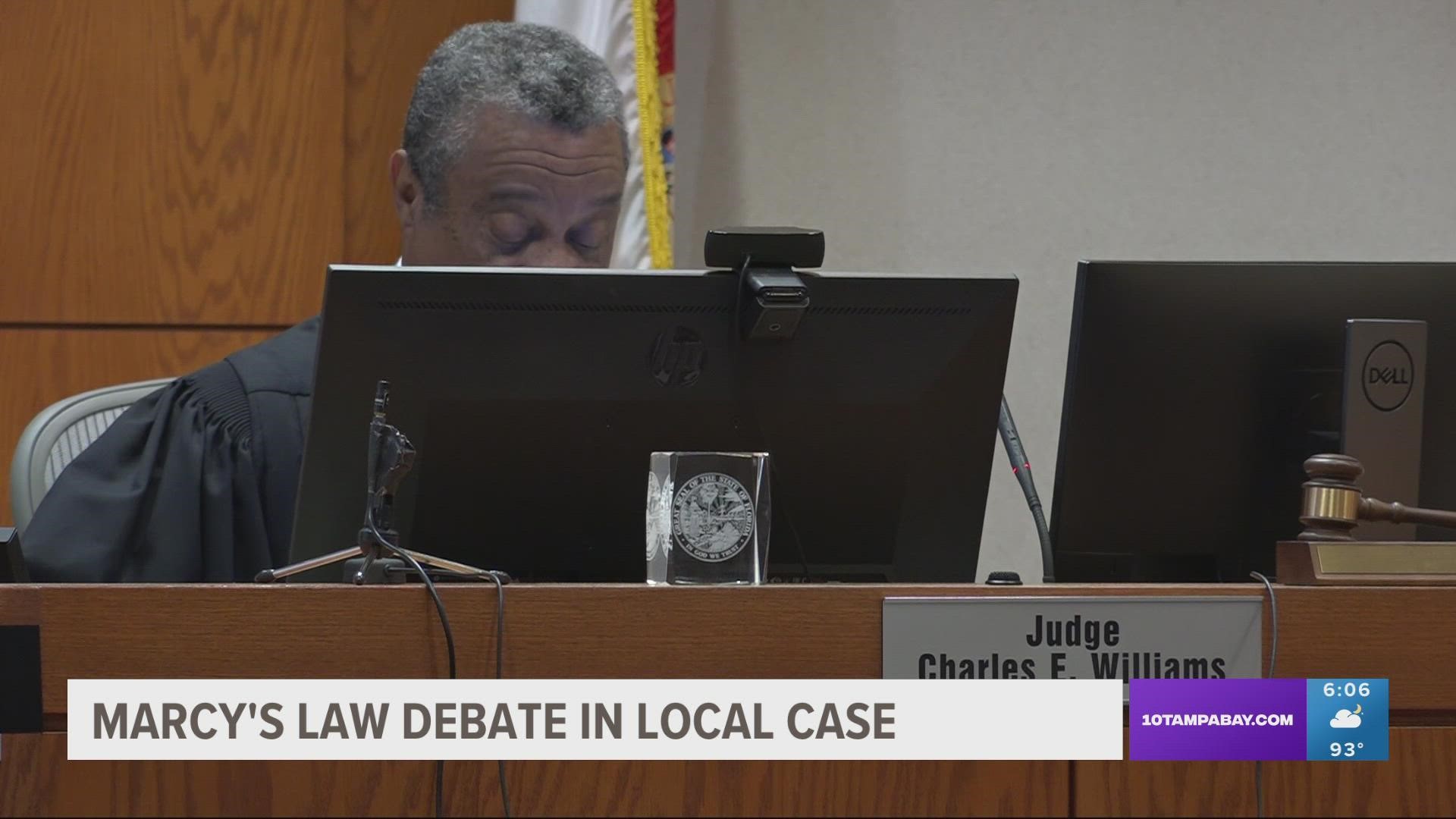SARASOTA, Fla. — A debate over Marsy's Law and when it can be invoked by government officials took center stage inside the Sarasota Courthouse.
Last week, Sarasota's Chief Circuit Judge Charles E. Roberts, at the request of the Sarasota County Sheriff's Office, issued a temporary emergency injunction that stopped a local newspaper from publishing the names of deputies involved in the fatal shooting incident on April 1 of a black man named Jeremiah Evans.
Lawyers for the Sarasota Herald-Tribune and the Sheriff's office laid their cases before Judge Charles Williams, Tuesday afternoon.
The two deputies in question are now identified as "DOE 1" and "DOE 2." On April 1, the two went to execute an eviction at a residence on Palm Avenue where they said Evans had been squatting and refused to leave after the owner passed away. The Sheriff's office claimed Evans lunged toward the deputies with a knife and a taser was deployed. They said the taser was unable to subdue Evans, hence the fatal shot was fired.
A reporter with the Herald-Tribune recently attempted to verify and seek further information about the last name that was included in one of the memos obtained through a public records request to the State Attorney's Office. According to the officials, the memo was inadvertently sent without proper redactions. But the Herald's position is that the documents in question are public records, whether redacted or not, were obtained legally and should not fall under the protection of Marsy's Law.
That law in Florida protects a victim's right to privacy by not making their name public. In the hearing, during the cross-examination of Crystal Bailey, a member of the sheriff's office's legal staff, counsels from both sides sparred over a reference to what appeared to be a badge number being included as an exhibit.
"OK your honor, I have got to object," said Morgan Bentley of Bentley, Goodrich & Kison, one of the lawyers representing the State Attorney's Office and the Sheriff's Office.
"This is Marsy's Law, this is it. This is what Marsy's Law is designed to prevent, this is a disclosure of any information that would identify the victim of a crime, and that's why Marsy's Law exists so we move to strike that testimony and you need to stop asking about the identity of 'Doe 2,'" Bentley said.
RELATED: Sarasota deputy shoots, kills man who came at authorities with knife during eviction, agency says
"Your honor, I am not asking about Marsy's Law, I am asking about what this number is. I don't know what this number means," responded James B. Lake, one of the attorneys fighting the injunction on behalf of the newspaper.
Earlier in the afternoon, a coalition of protesters from different activist groups including Black Lives Matter gathered at the courthouse grounds and called for accountability. They said they were picketing in solidarity with the newspaper and against using Marsy's law to shield law enforcement from accountability and the ability to cross-check their track record on the force.
Sarasota Sheriff Kurt Hoffmann released the following statement Tuesday morning.
"We are looking forward to making our arguments to the court today and to uphold the voters' intent to protect victims of crime including law enforcement personnel. We know this law is currently being appealed in another case to the Florida Supreme Court. Until that case is decided, the ruling by the 1st District Court of Appeals that Marsy's law applies to law enforcement officers is the current state of the law and we intend to follow it."
Judge Charles Williams, who presided over Tuesday's hearing is expected to issue a written ruling within the week.

